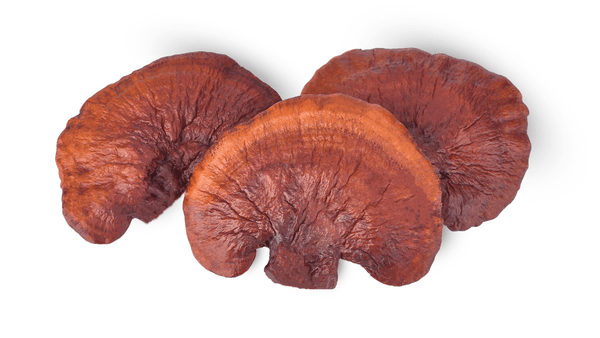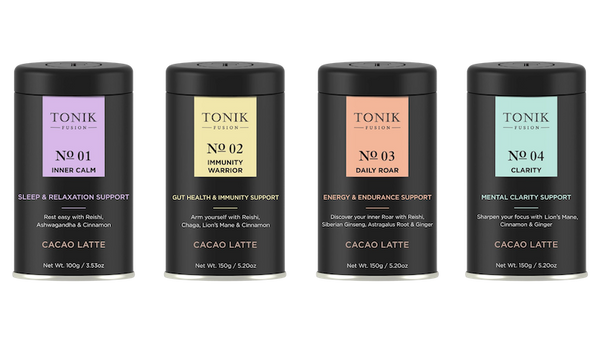Does Reishi Increase Serotonin? Exploring Its Emotional Benefits
Last year, during a particularly stressful period, a friend recommended I try a "magic mushroom" to help ease my mind. Not the psychedelic kind, but one named Reishi. Skeptical but intrigued by the idea of natural remedies, I gave it a shot.
To my surprise, not only did I start feeling more relaxed, but my overall mood improved significantly. This personal journey sparked my curiosity about the relationship between Reishi mushrooms and our emotional health, particularly their impact on serotonin levels.
Reishi mushrooms have been linked to mood improvement, potentially due to their impact on neurotransmitters like serotonin. While direct research on Reishi's ability to increase serotonin is limited, its adaptogenic properties might help regulate stress responses, indirectly supporting serotonin production. This, in turn, could contribute to enhanced mood, reduced anxiety, and better emotional well-being.
Understanding the connection between Reishi and serotonin involves exploring its broader effects on the brain and other "happiness hormones" like dopamine, oxytocin, and endorphins, offering a holistic view of its potential benefits.
What Is Reishi?

Reishi, known as the "mushroom of immortality" in traditional Chinese medicine, has been respected for its healing properties for thousands of years. It's not just its longevity-promoting claims that catch the eye; Reishi's adaptogenic qualities make it a go-to for supporting the body's stress response system. By fostering balance, it's believed to help the body and mind adapt to stress, potentially enhancing overall well-being.
What Is Serotonin?
Serotonin, often dubbed the "happiness hormone," plays a crucial role in our mood, emotions, and overall mental health. It's integral in several bodily functions, such as:
- Mood Regulation: Serotonin is crucial for maintaining a balanced mood and emotional stability, often linked to feelings of happiness and well-being.
- Sleep Regulation: It plays a significant role in the sleep-wake cycle, influencing the quality and rhythm of sleep.
- Digestion: Serotonin is involved in regulating bowel movements and overall gastrointestinal function, including gut motility.
- Appetite Control: This neurotransmitter helps regulate hunger and satiety, impacting eating behaviors.
- Cognitive Functions: Serotonin influences cognitive processes such as learning, memory, and decision-making.
- Cardiovascular Health: It helps regulate blood pressure and heart function, contributing to cardiovascular system stability.
- Pain Perception: Higher serotonin levels can contribute to lower pain perception, playing a role in how the body responds to pain.
- Bone Density: Serotonin is involved in bone metabolism, with its levels affecting bone density and strength.
Can Reishi Boost Serotonin Levels?

Reishi mushrooms, with their adaptogenic qualities, might influence serotonin levels by modulating the body's response to stress, a well-known factor that can negatively impact serotonin synthesis.
Stress triggers the release of cortisol, which can disrupt serotonin pathways, leading to diminished levels and adversely affecting mood and emotional well-being. By potentially reducing stress and cortisol levels, Reishi can help normalize the conditions under which serotonin is produced, thus fostering an environment where serotonin synthesis can thrive.
This indirect support to serotonin production could be one of the mechanisms through which Reishi enhances mood and contributes to emotional balance, illustrating the interconnectedness of stress management, adaptogenic support, and neurotransmitter health.
How Does Reishi Affect Other Happiness Hormones?

Impact on Dopamine
Dopamine, the "reward" neurotransmitter, influences our experience of pleasure and motivation. Reishi mushrooms may have a positive impact on dopamine levels by supporting brain health and neurotransmitter balance.
Like with serotonin, their adaptogenic effects can help mitigate stress, a factor known to disrupt dopamine function, thereby potentially stabilizing dopamine pathways. This stabilization can enhance feelings of pleasure, motivation, and engagement in daily activities, suggesting a beneficial role of Reishi in supporting the brain's reward system.
Influence on Oxytocin
Oxytocin is a hormone and neurotransmitter often associated with social bonding, trust, and emotional intimacy. The adaptogenic properties of Reishi mushrooms, which help the body manage stress more effectively, could indirectly promote the conditions necessary for healthy oxytocin production.
Similarly with serotonin and dopamine, by reducing stress, Reishi may enhance oxytocin's role in fostering deeper social connections and a sense of well-being, highlighting its potential to support emotional health and interpersonal relationships.
Role in Endorphin Release
Endorphins are the body's natural opioids, responsible for pain relief and the sensation of euphoria. The anti-inflammatory and analgesic effects of Reishi mushrooms could encourage the body to produce more endorphins, reducing pain and elevating mood.
This mechanism suggests that Reishi may not only mitigate physical discomfort but also contribute to a heightened sense of happiness through endorphin stimulation.
Can Reishi Make You Happier?

Considering what we've learned about neurotransmitters and Reishi's potential effects on them, it's plausible that Reishi can contribute to an increase in happiness. Through its adaptogenic properties, which may help manage stress, Reishi could indirectly support the balance of serotonin, dopamine, and endorphins—key players in mood regulation, motivation, and pain relief.
This multifaceted approach suggests that beyond the direct biochemical interactions, the overall enhancement of well-being and reduction of stress through Reishi could be instrumental in fostering a happier state of mind.
Integrating Reishi for Emotional Well-being
Incorporating Reishi into your routine can be as simple as adding our cacao lattes to your routine. At Tonik Fusion, we offer three specially crafted cacao latte blends with Reishi and other adaptogens tailored to different needs, from stress relief to immune support.

These blends not only make it easy to integrate Reishi into your life but also offer a delicious way to explore its potential benefits. You can shop our full range here.
FAQ’s about Reishi & Serotonin
What Specific Components in Reishi Mushrooms Might Influence Serotonin Production?
Reishi mushrooms contain bioactive compounds like triterpenoids and polysaccharides, which are thought to potentially support serotonin synthesis by modulating immune function and stress response.
Can Reishi Mushroom Consumption Improve Sleep Quality Through Serotonin Regulation?
By potentially enhancing serotonin levels, Reishi mushrooms may improve sleep quality, as serotonin plays a crucial role in regulating sleep-wake cycles.
How Does Long-Term Reishi Supplementation Affect the Brain's Neurotransmitter Balance?
Long-term use of Reishi may help maintain a balanced neurotransmitter environment, supporting sustained mood enhancement and cognitive health, although individual results can vary.
How Does Reishi Interact With Other Natural Supplements Known to Affect Serotonin Levels?
Reishi may complement other natural serotonin-supportive supplements, but it's important to consult healthcare professionals to avoid potential interactions and ensure synergistic effects.
Can Reishi Mushrooms Influence the Effectiveness of SSRIs or Other Mood Medications?
Reishi could potentially interact with SSRIs or mood medications, so it's crucial to consult a healthcare provider before combining them to ensure safety and effectiveness.
Closing Thoughts
As we wrap up, remember that while Reishi offers promising benefits for emotional health, it's part of a holistic approach to well-being. If you're curious about exploring how Reishi can fit into your lifestyle, consider visiting our shop.
Take our quiz to find the cacao blend that aligns with your goals and lifestyle, and embark on a journey to enhanced well-being with the support of adaptogenic mushrooms.